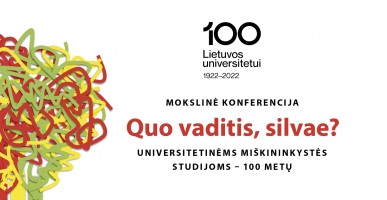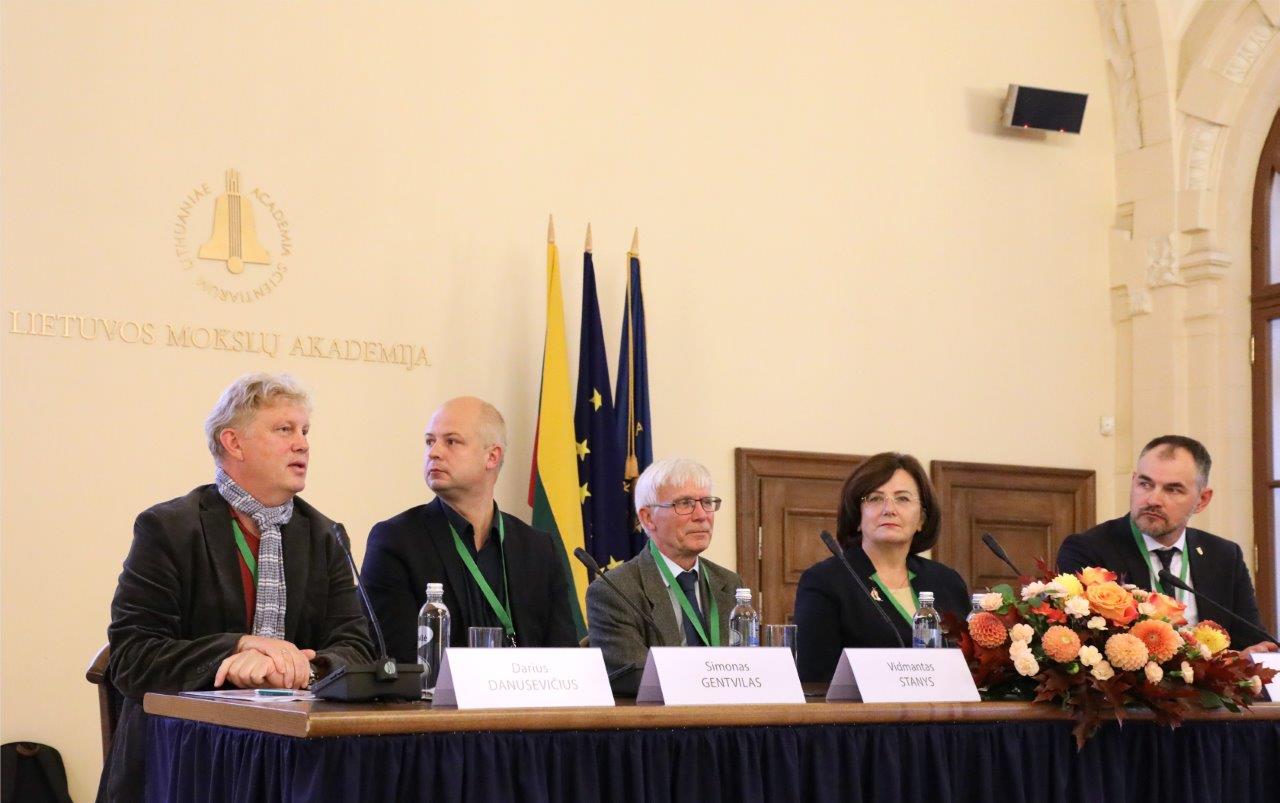Events
Lithuanian Forest Sector: Challenges for Horizon 2030
15 10 2022
In Lithuania, forests occupy around 33.7% of the country’s territory. The forest sector plays an important role in the country’s economy, ecology, and social needs. Nearly half of the 2.2 million hectares of the country’s forests are privately owned mainly by a large number of private persons. State forests are managed by a state forest company. The forest sector comprises three major elements: forest management, ecology, and forest processing industry with further connection to the market chains. Historically, as in most of the northerly regions of Europe, forests are given strong economical function by acknowledging sustainable management and forest ecosystem services. The forest sector accounts between 4-10% of the country’s GNP, depending on the calculation approach.
Presently, these century-long traditions of the Lithuanian forest sector are under increasingly stronger scrutiny by the public and politicians, along with the environmental pressure driven by global warming stressors. This pressure calls for an update of the forest strategy in Lithuania. An initiative by Ministry of Environment on a national agreement between the economic, ecologic and public spheres within the forest sector has already been pending for a year. The idea is to use the milestones from this agreement in the development of a new forest strategy for the coming decades. However, the forest sector is far too complex for such a popular initiative. The elements within the forest sector are well interconnected, so that the changes in one element markedly affect the others.
Furthermore, as it is stressed in the European forest strategy, forests are our dear natural treasure and sustainable resource, thus an efficient forest strategy is the one searching for optima between divergent forest functions. It must be acknowledged, however, that these optima could be region-specific, allowing some freedom for regional developments. Thus, for an efficient pan-European economy and resilient forests, we must consider the regional variation in forest economical potential and ecosystem properties in Europe. For this reason, revising the forest strategy becomes a complex issue with serious consequences for the economy and ecology of a country. Therefore, the development of a forest strategy primarily requires competence and scientific knowledge rather that emotion-driven public initiatives. To strengthen the ties between the forest policy makers, forest administration, the forest sector, and scientists, the establishment of a Forest Sector Platform hosted by a scientific institution in Lithuania is envisaged. The model under which this platform could function is currently under debate, but one way could be a project-based model with a more permanent support for a coordinator position jointly by the scientific institution, the government, and the forest sector.
National academies of sciences may also play a mediative role in searching for optimum development scenarios, especially by promoting scientific instruments to support the decision making. A good example of such mediatory activity is the open discussion ‘Qua vaditis, silvae’ held at the Lithuanian Academy of Sciences. The open discussion, during which the above-mentioned problems were discussed and the idea of the Forest Platform was proposed, was conducted jointly by the Lithuanian Academy of Sciences, the Ministry of Environment, and Vytautas Magnus University.

Resolution of the scientific conference ‘Quo vaditis, silvae?’ held at the Lithuanian Academy of Sciences to commemorate the 100th anniversary of forestry studies and the forestry science in Lithuania, as well as to discuss the perspectives of forestry and the forest sector:
1. With the increasing negative impacts of climate change and economic and geopolitical instability, the forest sector is becoming a sector of national importance. Sustainable development of the forest sector is a complex process requiring science-based strategic planning with appropriate competences.
2. Competence- and research-based solutions for the development of the forest sector would be more effective through a closer integration of science and the forest sector via joint advisory councils, collaboration platforms, and extension publications.
3. We propose to develop the existing forest-related centres of excellence and infrastructure, including long-term research, experimentation, and training. We propose forest-related sciences be included among priority scientific topics and forest-related research, especially long-term research on forest ecosystems, be given due attention in the updating of national research programmes.
4. In order to achieve sustainable forestry today, it is not enough to simply follow directives, regulations, or rules at various levels. The changing needs of modern society and the uncertain future created by climate change require highly skilled professionals whose activities are not process-oriented, but focused on long-term results. We underline the need for highly skilled professionals with a broader holistic mindset and responsibility for both the sustainability of ecosystems and for maximising the contribution of forests and forestry to the well-being of the country and its citizens.
5. The forest sector encompasses a system of cultivation, maintenance, and use of forests that has been developed over decades, an ambitious timber industry with promising perspectives for EU markets, and the natural ecosystems in which much of our country's biodiversity is located. Strategic decision-making must optimally balance the complexity of the forest sector and the integrity of forest ecosystems, which are economically, ecologically, and socially important to our country.
Division of Agricultural and Forestry Sciences, Lithuanian Academy of Sciences
Prepared by Prof. Darius Danusevičius
